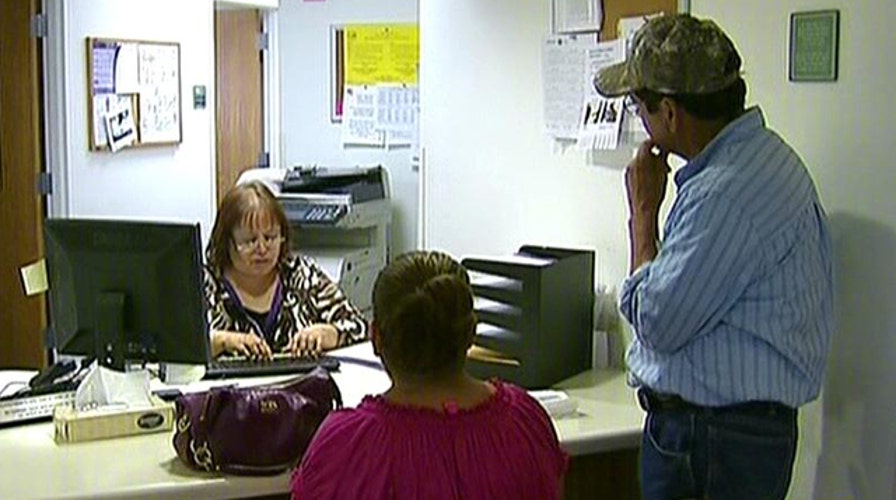ObamaCare winners: A look at folks profiting from the law
William La Jeunesse reports from Los Angeles
While polling data suggests many Americans remain anxious and skeptical about ObamaCare, the early big winners of the president’s signature law include investors, lawyers, consultants and purveyors of new technology.
Since March 23, 2010, when it was signed into law, the health care sector of stocks in the S&P 500 has increased in value by 50 percent. Gilead Sciences, a California-based drug maker with 5,000 workers, has seen its stock price explode by 157 percent in the last three and a half years.
Health insurers Cigna, Aetna and United Health have each seen healthy gains since President Obama signed the reform measure. Those companies as well as hospital operators Tenet Healthcare and Health Management Associates have seen stock gains near or above the S&P's overall 41 percent jump.
On a smaller scale, lawyers with expertise understanding ObamaCare are winners, too.
Arthur Tacchino grew up near Philadelphia and says he always wanted to be a lawyer. He earned his law degree in 2010 and while some of his fellow graduates struggled to find work, Tacchino says he's fortunate to have stumbled into a job asking him to become an ObamaCare expert.
Even though he didn't have an interest in health care, he's now taken his intricate knowledge of the law to the private sector, where he's part of a small team selling software programs to companies needing help managing the new law’s red tape.
"We're trying to create an aid for people who need to understand the law and might not have the legal education they need to understand it," Tacchino recently explained from his home office in the Philly suburbs.
SyncStream Solutions is one of many small niche companies profiting from the complexity of the law and its mandates and Tacchino says most people are surprised to learn about new administrative tasks demanded by ObamaCare.
He highlights one that forces businesses to keep close count on the number of hours worked by part-time workers and report that information to the federal government. He likens it to paperwork for taxes or payroll.
"Business has been fantastic," Tacchino boasts. "I mean we've partnered with some major clients all over the country and it seems as we grow and expand our business more people hear about us and realize there is a need for what we're doing."
Consultants and lobbyists with ties to ObamaCare have also done well in recent years as large companies struggle with implementing the law while also trying to persuade government officials to tailor rules to their liking.
"It's no secret to anyone that the mechanics of what has happened with ObamaCare have been driven by some very strong lobbying from the private industry," Dr. Sreedhar Potarazu, founder of VitalSpring Technologies Inc., told Fox News.
Some of the key behind-the-scenes players who helped write the law and draft regulations implementing ObamaCare are now lobbying on behalf of corporate clients.
Consulting companies, a frequent go-to resource for businesses who want outside expertise, have also beefed up their ObamaCare offerings.
"The likes of Accenture, Deloit [and] the major consulting firms are really trying to get into the market in terms of helping guide and bring together the chaos by laying out a strategy in terms of how all of these various dots need to connect," Potarazu explained.
But he also warns that the constant changes in the law's technical requirements may prove problematic for anyone who doesn't pay close attention to what's happening in Washington.
One of ObamaCare's requirements is a mandate forcing doctors and hospitals to move towards electronic record keeping. Shareholders in some of these firms have done quite well in recent years: Athena Health is up 180 percent and Cerner is up 110 percent since ObamaCare became law.





